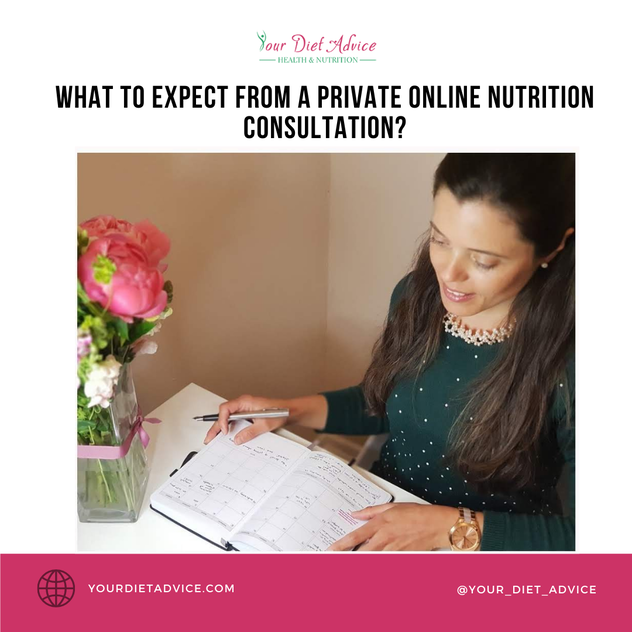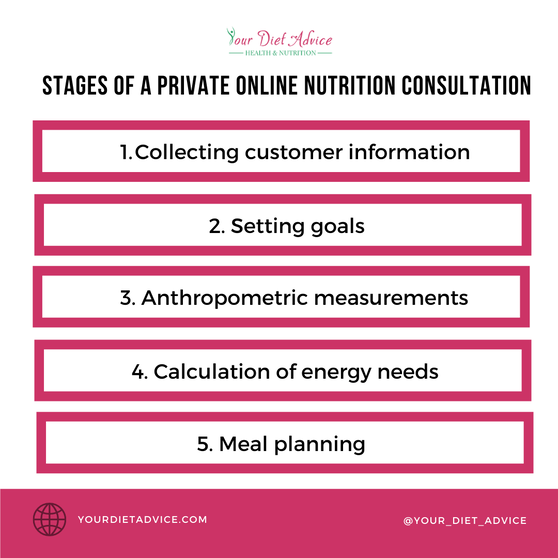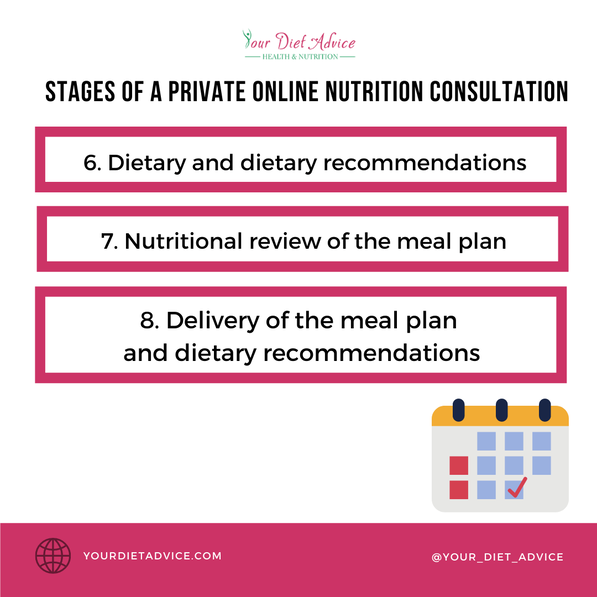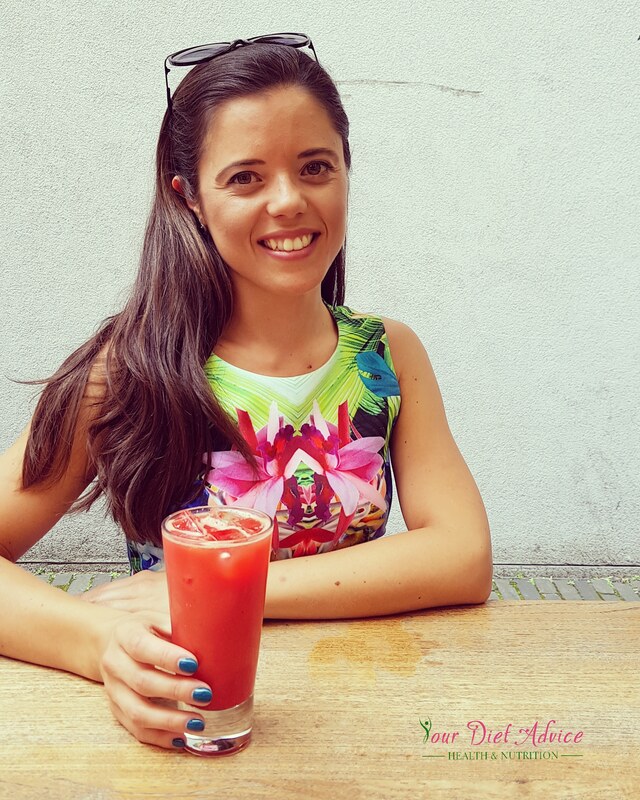|
Are you worried about your diet, or your weight? Are you constantly tired or do you have a health condition where you need to be more careful with your diet? The dietitian is the most suitable health professional to help you improve your eating habits. You will be able to have access to nutrition consultations, on medical referral at the national health service (NHS), but you will probably have a longer waiting list, as the demand is very high. Or you can turn to dietitians who work in private. They usually manage to assist you with less waiting time compared to the NHS. The type of care provided by a dietitian in the private sector will also be a little different, simply because they have more consultation time. Normally, a dietitian who works in the private sector dedicates an hour to a nutrition consultation. While in the NHS, the consultation has to be carried out quickly, between 10 and 15 minutes. The prescription of a meal plan at a NHS nutrition consultation may also be different. It can also be different depending on the health professionals. Not all dietitians prescribe meal plans. In the UK, for example, dietitians who work on the NHS do not normally prescribe meal plans. First step - collecting customer information The dietitian will ask you about your profession, age, area of residence, reason for the consultation, expectations, and objective. It will also ask about your health status, bowel function, smoking habits, alcohol consumption, hours of sleep, physical activity, usual routine (times to wake up and sleep, time and place of meals, type of food (vegetarian , vegan, etc), favorite and disliked foods, food allergies and food intolerances, nutritional deficiencies, and daily water consumption. The dietitian will also ask you about the presence of any illness, as well as current medication taking, family history of illnesses and types of illnesses, and any other information that he/she deems relevant, depending on the case of each person. If there are recent blood tests, the dietitian will ask you to share the results, if possible. These can help to assess your nutritional status, if for example there is a nutritional deficiency, and also check your blood sugar and blood fat. The last step in collecting information is the collection of food history. This can be done in different ways: filling in a 7-day food diary, prior to the consultation, or recording what you ate the day before or in the last 3 days, for example. Other aspects regarding eating behavior will also be taken into account, for example, if there are periods of compulsive eating, or restriction, or emotional hunger. In private online nutrition consultations, this information gathering process is facilitated by sending a questionnaire in advance, which you can fill out before the consultation. All this can be done electronically by sending a questionnaire in word by email, for example, or even filling out the questionnaire directly in the software used by the dietitian, which helps to maintain confidentiality. This allows the dietitian to prepare the appointment in advance, in order to use the appointment time more effectively. Usually, sending of a previous questionnaire does not occur in face-to-face consultations. Information is collected during the consultation. All this collection of information allows the dietitian to have a better knowledge about his/her client, so that he/she can better help him. Please note that this first step of the nutrition consultation applies only to the first consultation. Second step - Setting goals In this step, it is important to define realistic objectives, and in SMART format (simple, measurable, achievable, realistic, time-bounded). You should set short-term and long-term goals. Third step - Anthropometric measurements The collection of anthropometric measurements is important to assess your nutritional status. At the very least, the weight and height are collected. Additionally, waist and hip circumference may be important for overweight and obese cases. They are good indicators of cardiovascular risk. If the consultation is in person, then the dietitian can take measurements of the subcutaneous folds, these will indicate the amount of body fat. Or use a bioimpedance scale to get more information about body composition, such as amount of water, amount of muscle, visceral fat, total fat, etc. Although these scales are not very accurate, it allows us to know the body composition. In private online nutrition consultations, these measures are requested prior to the consultation. If waist and hip circumferences are requested, then the dietitian will explain how to do it. Alternatively, these measurements can be taken at the health care center by a health professional and sent to the dietitian. Anthropometric assessment is a good indicator of your progress, if you are trying to manage your weight. Ideally, in follow up consultations, measurements are always taken in the same way, to reduce deviations in measurements. Fourth step - Calculation of energy needs The calculation of energy needs is based on your level of physical activity (sedentary, not very active, very active); and basal metabolism (energy your body expends at rest). There are several formulas that can be used for this calculation, it is up to the dietitian to decide which formula to use. There may be a slight variation in the calculation of energy requirements, depending on the formula used. After making the calculation of how much energy you need, the energy distribution calculation is made by macronutrients: carbohydrates, protein and fat. This energy allocation will also vary depending on the type of diet and nutritional goal, for example, low fat diet, high carbohydrate diet, or high protein diet. Fifth step - Meal planning This step may be different depending on the cases, nutritional goals and health professionals. For cases of weight management, a meal plan is still a common approach in private nutrition consultations, however not all dietitians prescribe meal plans, as mentioned above. If you expect to have a meal plan after the appointment, it is worth clarifying with the dietitian, before making the appointment, or at the beginning of the appointment. The dietitian can give you different meal plan options: meal plan with alternatives, this plan is more flexible and contains different meal options; 7-day meal plan, this plan is less flexible than the previous one, as it does not offer alternatives. The type of plan is a personal choice, there are people who prefer to be themselves to decide what to eat, which is the closest to the reality of everyday life; and others prefer not to think, and already have a structured menu for the week. The meal plan should be suitable for your type of diet (vegetarian, vegan, etc., excluding foods that you have allergies or intolerance or even that you don't like), and include all your favorite foods; include times of the meal as well as food portions. It can also contain several recipes. The meal plan can be done during the nutrition consultation, or after, if the dietitian feels that he/she already knows you well enough to prepare a suitable meal plan, and that you will like. Sixth step - Dietary and lifestyle recommendations The dietitian will advise you on how to increase your level of physical activity; how to prepare healthy meals and healthy cooking techniques; how to plan your meals; and it can also show you some techniques to reduce stress, and increase motivation. Seventh step - Nutritional review of the meal plan At this stage, the nutritionist reviews your meal plan, if it is nutritionally balanced, if it meets the recommendations, or if it needs some adjustment. Eighth step - Delivery of the meal plan and dietary recommendations The meal plan and dietary recommendations in the online consultation are sent by email, and may also be available in application (if the dietitian uses any software). Some dietitians also provide a shopping list according to the meal plan, which can facilitate the meal preparation process. When you receive the plan, it is important to read it carefully and see if there is anything you want to change before starting. If so, don't hesitate to contact your dietitian to do so. One of the advantages of the online private nutrition consultation is that there is usually more frequent follow-up between appointments. Of course, this aspect can vary between professionals. But some professionals are available to clarify doubts weekly, by message or email. This weekly follow-up does not always take place in face-to-face private consultations or at the NHS.
The dietitian who works online usually uses software to monitor their customers, using tools such as Zoom, for example, and other applications, to record the progress of weight, compliance with the meal plan, access to the shopping list and meal plan on the mobile phone, recording of physical activity, and water intake, etc. Follow-up appointments are normally scheduled every 4 weeks, however this may vary depending on the healthcare professional and the case at hand. It is very important that you follow up with the dietitian until you reach your goal. So that you feel motivated along the journey, which sometimes could be long. I hope this article has been helpful in understanding how online private nutrition consultations work. If you have any further questions you would like to clarify, please do not hesitate to contact me by email or make an appointment with me, by clicking on here.
0 Comments
Leave a Reply. |
Categories
All
AuthorHi, I'm Joana, a Portuguese registered dietitian in the UK. I am passionate about helping others achieving their health goals. Archives
June 2024
|





 RSS Feed
RSS Feed